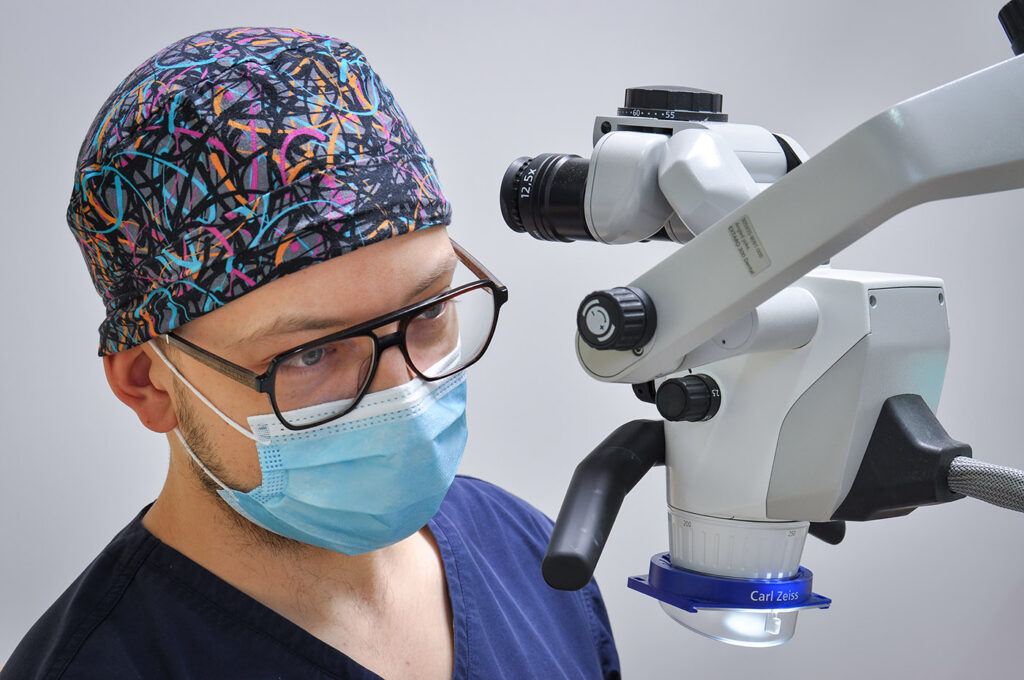Endodontics – root canal treatment as a way to avoid tooth extraction
Endodontics is a branch of conservative dentistry that deals with diseases of the dental pulp and the diagnosis and treatment of periapical tissue diseases.
Another, equally often used name for this specialty is root canal treatment.
The endodontic procedure is implemented in the case of inflammation and necrotic conditions of the pulp. It often makes it possible to avoid tooth extraction.
Endodontic treatment is often more labor intensive and time consuming than other dental procedures. Proper anesthesia technique ensures that no discomfort is felt by the patient.
After the treatment is completed, you may experience sensitivity for a few days due to irritation of the tissues around the tooth root.
In most cases, endodontics is performed in one session, although two or more visits may be necessary depending on the condition of the tooth to be treated.
Endodontic treatment is over 95% successful, and a good diagnosis before treatment makes it highly predictable.


Root canal treatment at Miling Dental Clinic
- Adequate local anesthesia ensures patient comfort during root canal treatment.
- Endodontic treatment is always performed under a cofferdam to prevent the risk of infection of the canal system with bacteria from the oral environment. This also prevents small tools or agents used to disinfect the tooth canals from entering the mouth.
- Microscope – helps increase the accuracy of treatment.
- Mechanical preparation – widening of canals including copious rinsing.
- Filling the canals using a liquid gutta-percha system.
All this improves the prognosis of the tooth after root canal treatment and, as a result, its long-term function in the oral cavity.
Procedures are based on the latest knowledge and standards, which are updated during specialist trainings.
AFTER ROOT CANAL TREATMENT
After root canal treatment, it is important to properly restore the crown of the tooth. In the case of large destruction of the tooth, when little natural tissue is preserved, a prosthetic restoration is the right solution. In contrast to a large filling, such a restoration reduces the risk of mechanical damage to the tooth by distributing the forces exerted during biting more evenly.

We fulfill the goals and tasks of a medical entity. We provide dental care to patients in accordance with current medical knowledge, current procedures, available methods and resources, with due diligence, as well as with respect for professional ethics and patient rights.